People
in Conservation
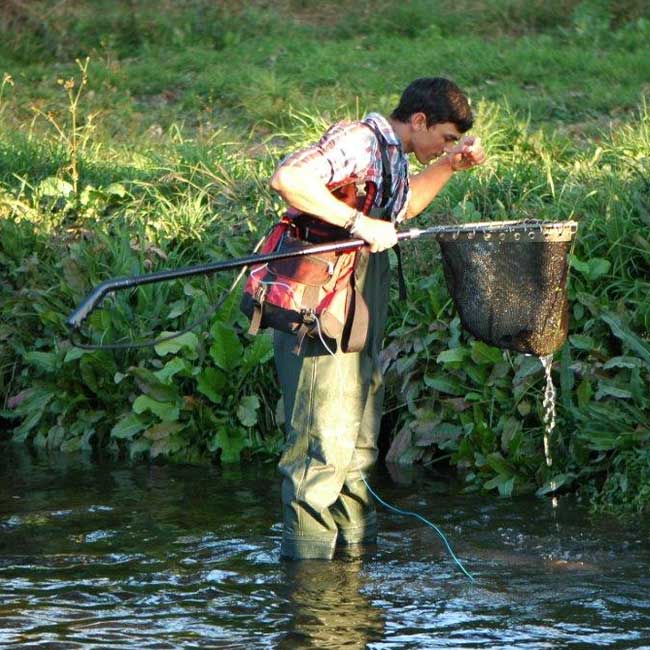
People and nature
People need nature to survive. Nature provides important resources we depend on, including food, water, and materials from which to build, make our clothes, medications, etc., and power our houses. Healthy natural ecosystems provide services such as filtering our water, reducing the effects of extreme natural events like floods and droughts by absorbing and storing water, and reducing the impacts of climate change by absorbing carbon dioxide and providing us with clean air to breathe. Most people also have deep-rooted connections to nature, whether for cultural and spiritual belief systems or (re)turning to it to revitalise ourselves.
We must live in harmony with nature to thrive in healthy ecosystems that will support us and future generations, our wildlife, and maintain our rich natural and cultural heritage. Our People in Conservation Unit is dedicated to achieving this vision.
5
countries
5
projects
1
pack member

How we are benefitting people and nature
The EWT has always recognised that people are part of the environment and has long incorporated the needs of people living in our projects areas into our conservation activities through collaboration, job creation and fostering human resilience and well-being through climate-resilient agriculture and livelihood activities such as beekeeping. Working with people from all sectors of society, we address threats to wildlife and ecosystems such as habitat and water degradation, human-wildlife conflict, illegal hunting, and other activities to improve overall environmental health.
The People in Conservation Unit (PIC) was established in 2019 to strengthen these efforts and integrate people into conservation more holistically to improve project outcomes for both people and the environment. Working in South Africa, Kenya, Uganda, Zambia, and Rwanda, we empower people to take action to reduce their environmental footprints and contribute to conservation through education and awareness. By co-designing targeted strategies with partners and communities, we address conservation challenges and improve human well-being, equity, and environmental justice.







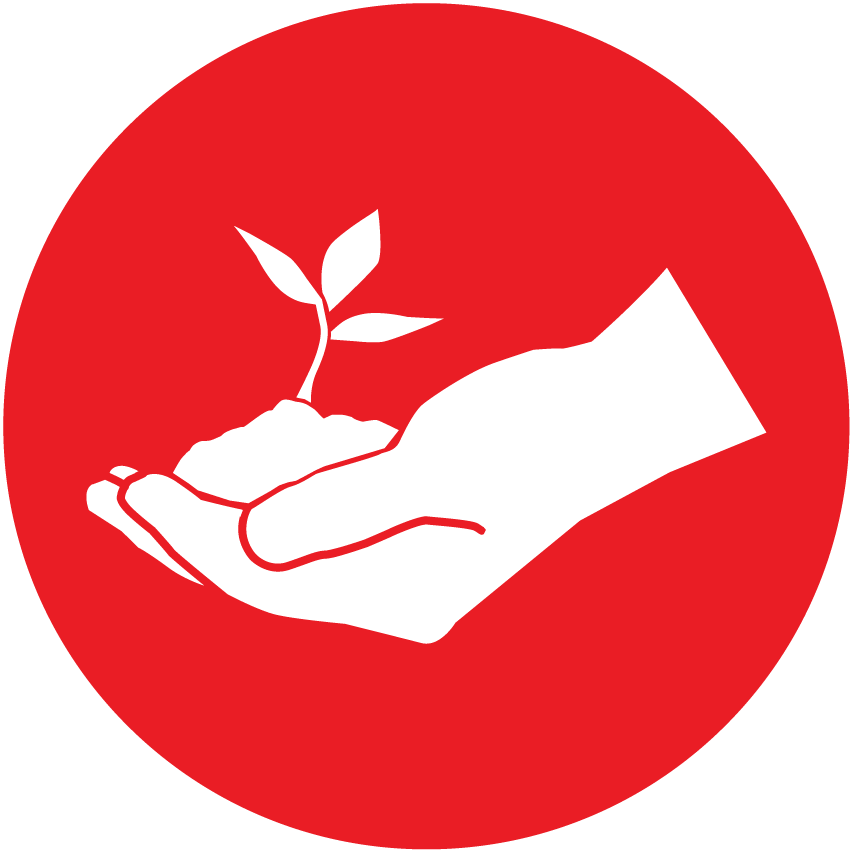
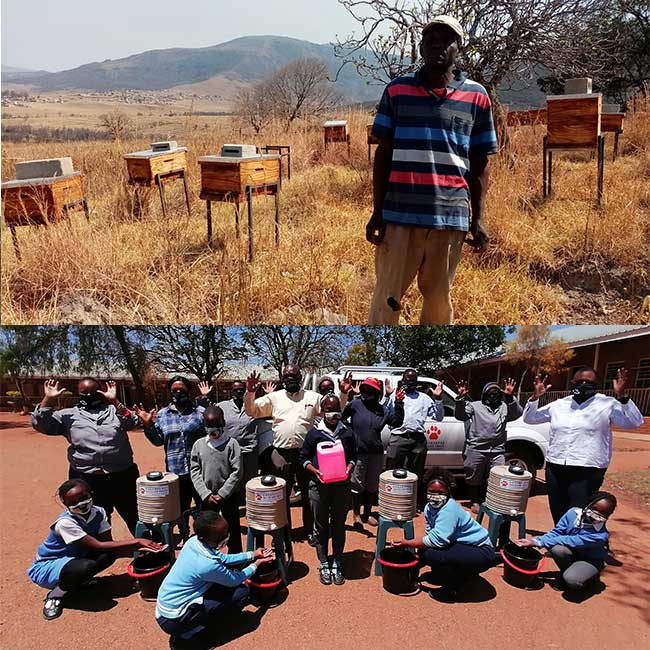
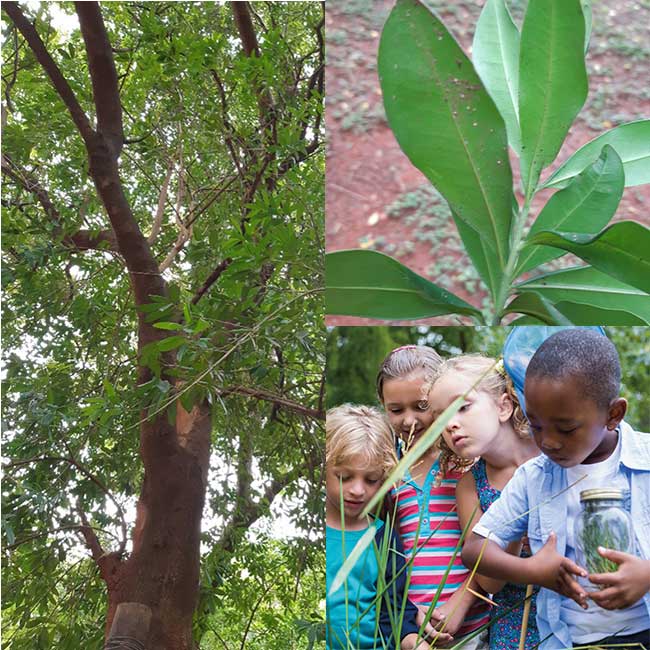
Medicinal Plants for the Future – The Pepper-bark Tree Project
The Pepper-bark Tree (Warburgia salutaris) is listed as Endangered on the IUCN’s Red List, mainly due to over-harvesting of wild populations, habitat loss, and pests and diseases.
Funded by the Fondation Franklinia, the EWT is implementing a project to:
- Research local threats to wild Pepper-bark populations.
- Protect trees in their natural environments and remove alien trees growing near wild populations.
- Legally provide Pepper-bark Trees to
- Traditional Health Practitioners and others who want to cultivate these and other medicinal plant species to reduce harvesting pressures in the wild.
- Survey muthi markets in Limpopo Province.
- Co-design improved management strategies and controls with communities situated in harvesting hotspot areas and other conservation partners, including law enforcement.
Download more on the Pepper-bark Tree in English and Venda
Guardians of the Future
The Guardians of the Future is a curriculum-based Education for Sustainability project that nurtures a more informed and environmentally conscious youth. The project enables educators to present lessons in Natural Sciences and Technology, Life Skills, Social Sciences, and related subjects engagingly and interactively to capture learners’ imaginations. We work with educators to co-design and create teaching aids and resources that demonstrate concepts and actively involve the learners in hands-on activities. Many of the resources developed can be found on our online education portal.

Soutpansberg Protected Area WASH Project
The Soutpansberg is a Strategic Water Source Area and forms part of the Limpopo River Water Management Area. The EWT has established the Medike Nature Reserve and is working with partners to develop an integrated conservation management strategy for the region.
To ensure that local communities benefit from conservation, we work with people from nine villages in Kutama, implementing a range of different projects, including WASH (Water, Sanitation, and Hygiene) education and awareness initiatives in schools, in partnership with the Coca-Cola Foundation’s Replenish Africa Initiative (RAIN) 2019 and 2021. RAIN is The Coca-Cola Foundation’s flagship African community program that aims to improve the lives of people in Africa through Water, Sanitation and Hygiene (WASH) programs and other water-based initiatives. Alongside educators, we held focus groups with grade 8-11 girls on women’s health and provided each with reusable sanitary pads.
Sustainable Agriculture
To support smallholder vegetable farmers living in the western Soutpansberg, we are developing training courses to strengthen long-term sustainability and climate resilience by implementing agricultural approaches that boost soil fertility and water management with integrated pest control and conservation-friendly approaches to reduce human-wildlife conflict, for example. Farmers will also be supported to market their products through the diversification of crops and produce and growing their business viability and risk management capacity.
This project is supported by the Global Environment Facility. We are also collaborating with, and being supported by, multiple partners in the Western Soutpansberg.
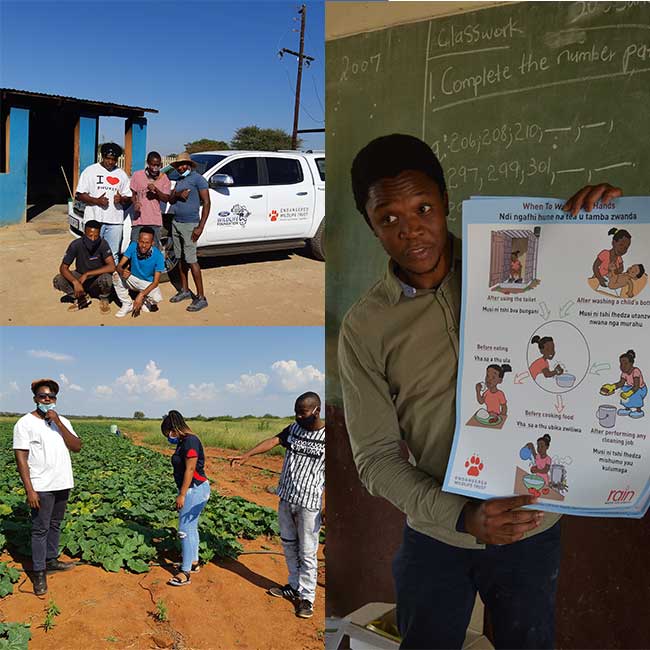
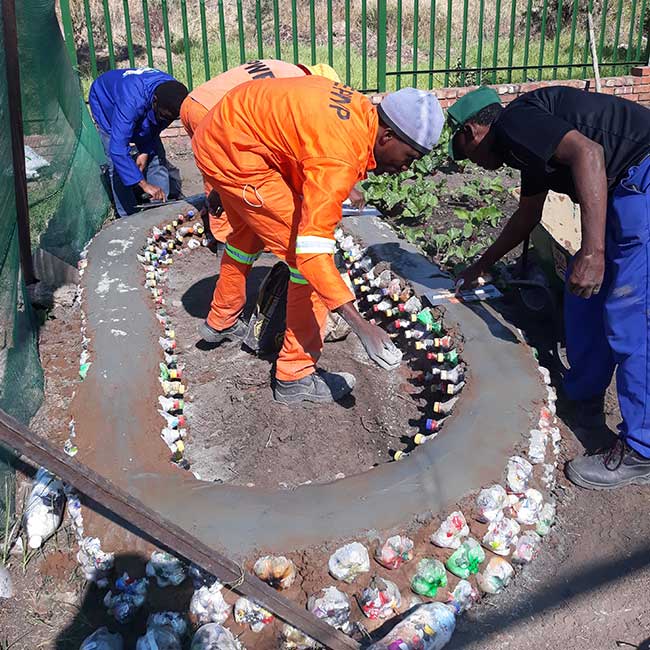
Land and Biodiversity Stewardship
In collaboration with the Western Soutpansberg Nature Reserve, we are introducing Communal Property Associations and other landowners to Biodiversity Stewardship so that they can assess their land and, potentially, join the Biodiversity Stewardship programme in the western Soutpansberg in the future.
This exciting project is greatly strengthening the capacity of landowners to conserve the rich biodiversity of the Soutpansberg through networking and sharing experiences and opportunities.
Building a Community of Practice
The EWT is building a Community of Practice through which we can share our experience and lessons learned to facilitate ongoing collaborative learning and support for our People in Conservation initiatives across programmes and with our partners. The platform also enables us to share many and varied resources being developed across our programmes to synergise our efforts and create a safe space in which we can share and pilot prospective innovations whilst also ensuring that we understand and implement sound development practices that help manage risk and navigate the challenges associated with any development initiatives.
The Community of Practice plays a vital role in our ongoing quest to grow our positive impacts for conservation and people to ensure a sustainable legacy in which future generations thrive alongside nature.

Stories of Success for
People in conservation

WASH
The EWT provided engaging and valuable teaching aids and resource packs on hand washing and germ transmission to more than 800 primary school learners and facilitated WASH focus groups for 400 young women and educators in Kutama. We also provided the girls with reusable sanitary pads to contribute to reducing period poverty and waste management challenges.
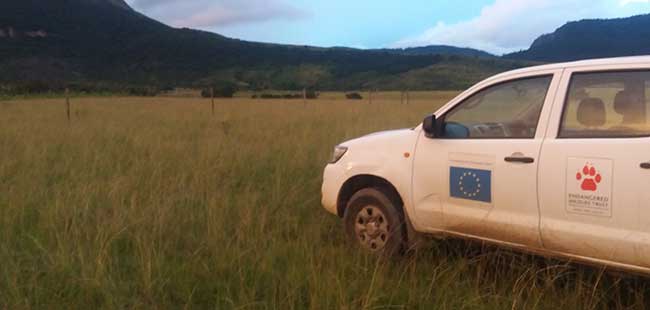
Amathole Catchment
We collaborated with our Threatened Amphibian Programme to facilitate the biodiversity stewardship processes with private landowners and secure habitat for the Critically Endangered Amathole Toad. We initiated the Amathole Catchment Forum to improve communication between stakeholders managing this critical water catchment. To contribute to local livelihoods and biodiversity, we initiated a beekeeping project with some of those who had previously participated in an EWT alien plant clearing project in the Tyume Valley. The Tyume Valley Beekeeping Association now places hives in Hogsback, with the support of the people living there and has two fenced apiaries near Nothenga and Sompondo villages. The PIC conducted training in climate-smart vegetable cultivation for farmers from the Tyume Valley. These achievements were made possible by the Rand Merchant Bank
What you can do to help people in conservation
- Learn everything you can about nature and wildlife
- Teach others and help raise awareness of the need to conserve our natural environment for us and other species to thrive
- Look for sustainable ways to carry out daily tasks and reduce the footprint you leave behind by making informed purchases, using renewable resources, and reducing your use of non-biodegradable disposable materials like plastic bags
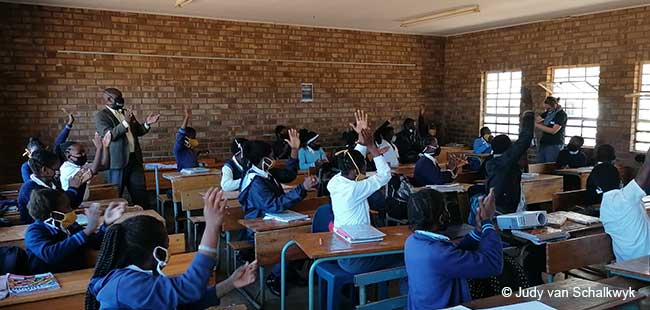
Guardians of the Future
We developed additional teaching aids and resources (curriculum boosters) and launched an online education platform to provide learners under lockdown with materials that stimulate their imaginations and curiosity about nature.
In collaboration with the Magaliesberg Biosphere Reserve and second and third-year students from the University of Johannesburg, we developed curriculum-aligned teaching aids and resources that portray biodiversity and habitats in this unique and culturally-rich area. The project reached over xxx learners from the Mjakaneng Primary School, and educators and reviewers were extremely positive about the resources. We are in the process of refining some additional materials to share with them.
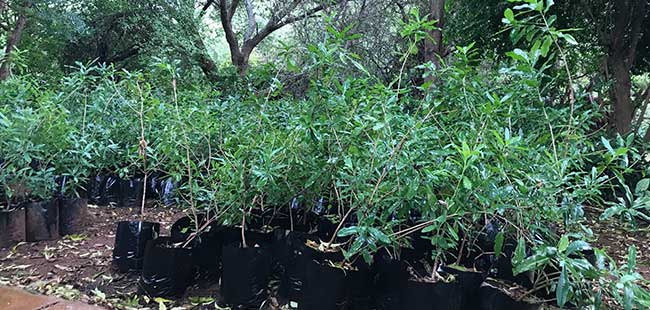
Barking up the right (Pepper-bark) Tree
Despite the Covid-19 pandemic, we met with over 100 traditional healers, community leaders, and other community members from 25 villages in Limpopo to discuss the loss of the Pepper-bark Tree to overharvesting and donated approximately 400 Pepper-bark saplings so communities can harvest the highly valued bark and leaves used in herbal remedies directly from their gardens. Scientists have confirmed that the leaves contain the same phytochemicals as the bark and roots, reducing the impacts of harvesting as it is easier to harvest leaves sustainably than the bark or roots.
